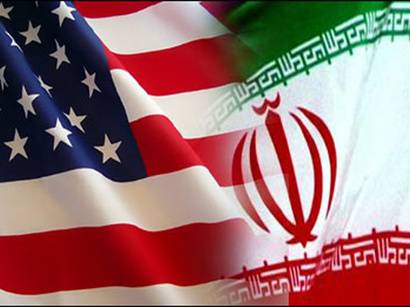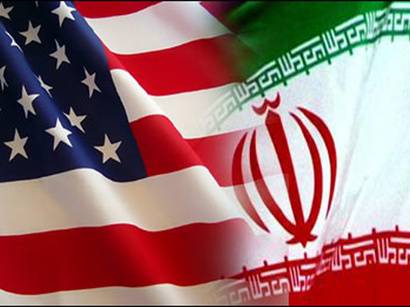
“If they can get you asking the wrong questions, they don’t have to worry about answers.” — Thomas Pynchon
Ed Kolodziej, a political scientist at the ethically-challenged Little University Around the Corner in C-U, has favored the local daily with his views on the Obama-Kerry administration’s negotiations with Iran [“Iran treaty would be a step forward,” News-Gazette, 3/15/2015].
Professor Kolodziej is one of the reasons political science enjoys the reputation it has today. After urging us that “Facts should be kept in mind,” he begins with the Netanyahu-lite lie that “an Iran with nuclear weapons would constitute [a threat to the existence of Israel]” – while Israel in fact has hundreds of nuclear weapons and has accurately been called a stationary aircraft carrier for the US government’s thousands of nuclear bombs.
A more accurate assessment was offered by Noam Chomsky on Democracy Now!, one of the few news channels in US media outside corporate control:
“For Prime Minister Netanyahu and the hawks in Congress, mostly Republican, the primary goal is to undermine any potential negotiation that might settle whatever issue there is with Iran. They have a common interest in ensuring that there is no regional force that can serve as any kind of deterrent to Israeli and U.S. violence, the major violence in the region … [Iran’s] general strategic posture is one of deterrence. They have low military expenditures. According to U.S. intelligence, their strategic doctrine is to try to prevent an attack, up to the point where diplomacy can set in. I don’t think anyone with a grey cell functioning thinks that they would ever conceivably use a nuclear weapon, or even try to. The country would be obliterated in 15 seconds. But they might provide a deterrent of sorts. And the U.S. and Israel certainly don’t want to tolerate that. They are the forces that carry out regular violence and aggression in the region and don’t want any impediment to that.”
Furthermore, US negotiations with Iran aren’t really concerned with Iran’s non-existent nukes (even less with Israel’s quite existent ones). What the Obama administration is trying to do – and what really upsets the Israeli government, who know nuclear weapons are a made-up issue – is re-incorporate oil-rich Iran into the American system of control of Mideast energy resources. During the Second World War, when the US was taking over, the State Department said of Mideast oil, “It’s a stupendous source of strategic power and the greatest material prize in world history.”
Control, not just access, has long been the goal of US policy. At the time of the US invasion of Iraq, Zbigniew Brzezinski, adviser to presidents from Carter to Obama, pointed out that America’s control over the Middle East “gives it indirect but politically critical leverage on the European and Asian economies that are also dependent on energy exports from the region.” Control of world energy flows gives the US an unparalleled advantage over its economic rivals in Europe and Asia. The current fall in oil prices has notably hampered the economies of US enemies Russia and Venezuela.
Until the Iranian revolution of 1979, which removed an American-installed dictator, American control of Mideast energy rested on an effective alliance of three US clients, Saudi Arabia, Israel, and Iran. The Obama-Kerry administration is trying to continue that alliance by reincorporating Iran and weaning it away from the Russian-Chinese SCO (Shanghai Cooperation Organization, the Eurasian counter to NATO).
Contrary to Kolodziej’s psuedo-scientific fantasies, what we’re seeing within the US government is a dispute on tactics, not strategy, in regard to the Mideast. Although they agree on the general US goal of controlling Mideast energy resources, the neoliberals in the US government (dominant in the administration) want an accommodation with Iran; the neoconservatives (dominant in Congress) want war.
Neoliberalism is the conscious campaign by American business elites to reverse the democratizing trends in the American economy from the New Deal through the 1960s. Neoliberals in government support the limitation or abolition of social supports (which they call entitlement), like Social Security and Medicare; deregulation of business, including manufacture and finance; and promotion of the so-called private sector’s role in society. (Private sector means rich people, the 1%.) They want to limit democratic control of economic activity and have government protect the role of corporations around the globe. (They call that free trade.)
Neoconservatism advocates the ‘assertive’ promotion of democracy and the ‘American national interest’ in international affairs, principally by means of military force. But in this case “democracy” means US political control and the “American national interest” means the world-wide economic interests of the American rich, the 1%. As the playwright Tom Stoppard says, “War is capitalism with the gloves off.”
After a generation of intense political activity by the business elite in America, both Republican and Democrat parties are now both thoroughly neoliberal and neoconservative. But there can still be important differences on whom to kill to guarantee the profits of the American 1%.
C. G. Estabrook (Ph.D. history, Harvard) is a retired visiting professor at UIUC, where he was associated with the Program in Arms Control, Disarmament, and International Security. He conducts a weekly hour of political discussion, News from Neptune, on Urbana Public Television and YouTube, which Ed Kolodziej is invited to join.








